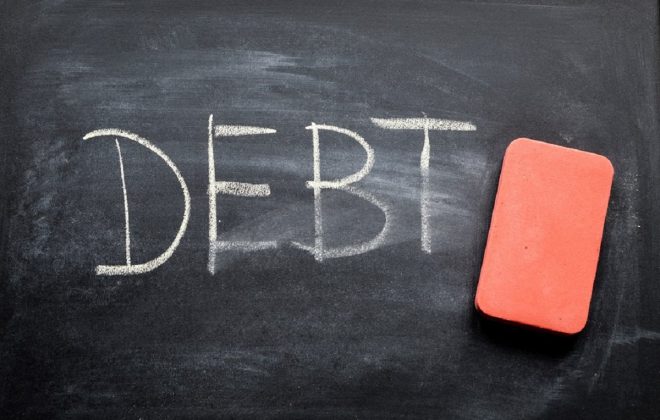Loans – the good, the bad and the ugly
Our industry is rife with unscrupulous operators who deliberately take advantage of desperate people when they are at their most needy. They specialise in trick marketing. But if you need a loan, take heart! Not all loan providers are scam artists.
At Moneyshop we pride ourselves on our integrity so today we’re going to teach you how to tell a good offer from a bad offer.
Don’t fall for these tricks
- An envelope with the words “Top Secret” stamped on it. Come on! Who is ever going to send you an interesting secret in the post? We absolutely promise you that there is no secret. The envelope contains nothing but trouble. It comes from a trick marketer planting an idea in your mind when you’re vulnerable.
- An email with the ‘from’ address: “Urgent Notice”. Really? Don’t open it! Just delete the mail. Better yet, mark it as ‘spam’. Here’s a golden rule for life: don’t open email you are not expecting from addresses you don’t know. Just don’t do it! You’re not missing anything. Promise!
- An email which says you’ve been pre-selected for a loan. This makes you feel special so you completely ignore the golden rule and open the mail. Now all you have to do is click on the amount of money you want, which could be anything from R5,000 to R150,000. As soon as you’ve done that, you’re taken to a form you need to fill in which will then tell you how much you qualify for. Guess what? You don’t qualify for R150,000. You probably don’t even qualify for half that.
- A direct mailer in the post which is similar to the email above, the only difference is that you’re invited to call in and go through the form-filling process. (See * for our recent personal experience of this). There is usually a card attached to this mailer but of course it’s not a real card, just a mock-up with your name on it and a random long number. They’re not selling you a card, just a loan.
Sorry to tell you this but there is no real “pre-selection” on 3 and 4. We think people are chosen quite randomly and the message is designed to make the gullible amongst them feel special. Those who respond could probably do with some extra cash.
Here’s the thing people: was there ever a day in your adult life when you felt you couldn’t use a bit of extra cash? Most people could do with some! Even the very rich think they need more money than they have. What we can promise you is that you will end up poorer once you’ve paid the price of a loan that was sold to you this way.
So much for the tricks! It gets worse. Here are some of the more serious scams.
Illegal loan scams
- Telling someone they are pre-approved. This is different from pre-selected. Pre-approved means you don’t need to go through a full process to get the loan. According to the National Credit Advisor, it is illegal to pre-approve anyone in South Africa before you have done a complete review of their income and expenses.
- Telling people that even if they are blacklisted they can get a loan. This is a huge problem in South Africa and almost certainly means the loan is a scam.
- Telling people they will not be credit checked. It is illegal to give a loan without first doing a credit check.
- Charging people to apply for a loan. For personal loans in South Africa, it is illegal for a 3rd party broker to charge a fee. You have to be smart about this! They will call it an application fee, a legal fee, a processing fee, etc. If they charge you money at any stage in the process of applying for a loan, it’s a guaranteed scam – simple as that.
* Personal experience
Here’s what happened recently to someone we know. We’ll call her Miranda.
Miranda got a letter in the post from Direct Axis. The letter said she was pre-selected for a personal loan of between R5,000 and R150,000. She knew about our Moneyshop to the Rescue series so she did a mystery shopper exercise for us. She called the number on the mailer and the guy who answered was clearly a member of the sales team.
He then started taking her through the review of her income and expenses. After quite a lengthy process, he got to the part where he had to ask for her banking details and that’s when he discovered that Miranda was a private banker. He immediately said that his company didn’t offer loans to people who banked privately and that was the end of the phone call.
This makes complete sense to us – someone who can afford a private bank account is highly unlikely to need a loan – but we did wonder why they didn’t already know that she banked with a private bank. This tells us she wasn’t really pre-selected.
Miranda’s advice after her call to Direct Axis
- If you have heard of the company, this can indicate that they are legitimate.
- They were very open about having sent out marketing material and thanked her for responding. Up-front honesty like this can be the sign of a legitimate offer.
- She was on the phone for half an hour before they established that she wasn’t eligible for their loan. Be prepared for this process to take time.
- She asked a lot of questions. They were all comprehensively answered. Their reaction shows legitimacy.
These are the kinds of questions to ask when applying for a loan
- What interest rate will be charged?
- Is it compound interest or simple interest? We did an article on this in Jan 2015.
- Will you be able to change the repayment period and make it either faster or slower?
- Will you be penalised if you do so? Understand that the lender works out the interest rate based on how fast or slow you will repay. It is quite legitimate for them to increase the rate if you pay the loan off quickly so that they can earn what they were originally expecting, just as it is legitimate for them to increase the rate if you need longer to repay.
- Will you be able to change the repayment amount? Our advice is that you are very truthful about how much you can afford to repay.
- What will happen if you don’t make a monthly payment on time? And what will happen if you don’t make a series of repayments on time?
- Who is the ultimate lender? Loans are normally sold by 3rd parties (like Moneyshop) and it’s good to know where the money is coming from.
MoneyShop





